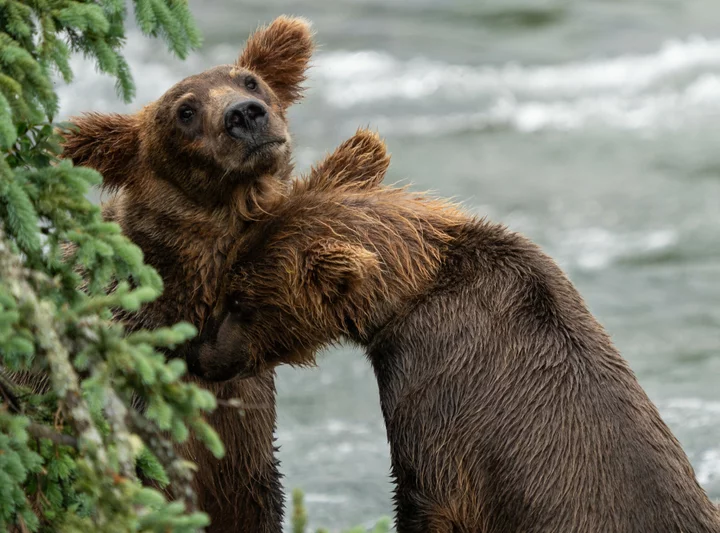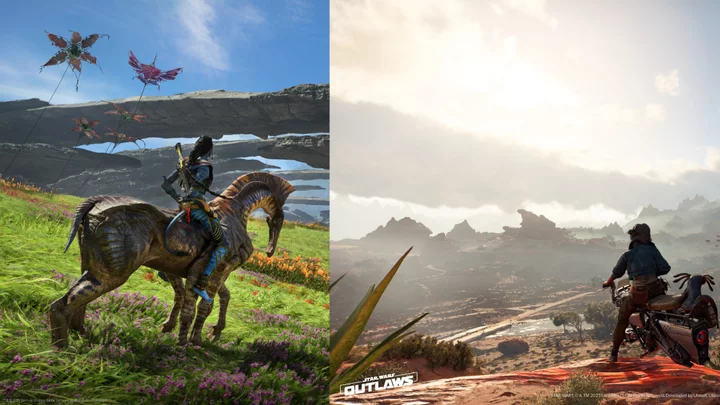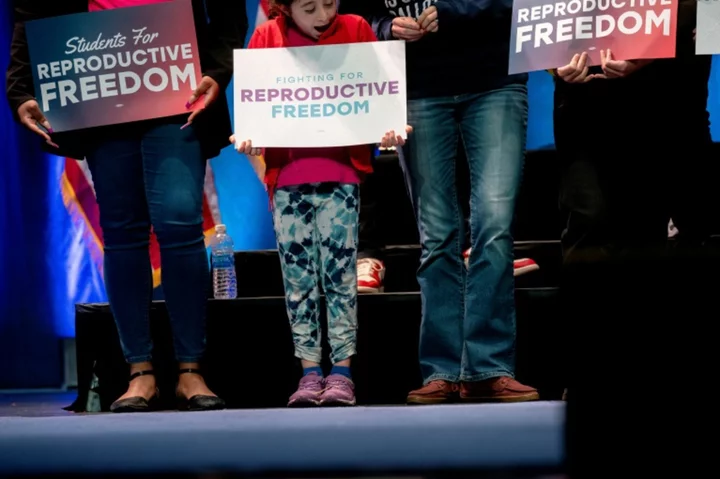In 2022, the park rangers monitoring Alaska's fat bears were astonished.
Brown bears are extremely cautious animals, constantly vigilant of threatening outsiders. That's why mothers and cubs keep to themselves. Yet last year, bear viewers both online and at the park witnessed two family groups in Katmai National Park and Preserve — two sisters, each with her own cub — act like a big family. They traveled the salmon-filled river together. Fished together. And even napped together.
Now, their story has taken another unexpected turn.
SEE ALSO: This bear looked frail and weak. Look at his transformation.The two mothers, bears 909 and 910, both returned to Katmai's famous Brooks River (where the livestreamed explore.org cameras are located and the Fat Bear Week bears live) this summer. But bear 909 separated from her female cub, who at two and a half years old was entering its third summer. Mothers often, but not always, push their cubs into independence at this age. But 909's cub wasn't yet ready to be an independent bear.
Instead, this cub started hanging around bear 910, her aunt, whom she was already quite familiar with.
"It was the perfect setup for an adoption in brown bears," Mike Fitz, a former Katmai park ranger and currently a resident naturalist for the wilderness livestreamers explore.org, told Mashable.
"It's a great story."The adoption, just the second one ever witnessed at Katmai, was "fully integrated," Fitz emphasized. Bear observers watched bear 910 nursing the adopted cub, which is an intense show of motherhood. These brown bears have a limited time to stock up on fat stores for the long Alaskan winter, where they burn fat to survive for some six months underground. 910 was giving invaluable calories to both her cub and the newly adopted cub.
"It's a great story," Naomi Boak, the media ranger at Katmai National Park and Preserve, told Mashable. "She was officially adopted."
The image below shows 910's two cubs, also known as "909 Jr." and "910 Jr," as they feast on salmon. Below that is a clip from the bear cams this summer: In the foreground, you can see 910 with 909 Jr. and 910 Jr. Behind them is the legendary fat bear Otis, bear 480, patiently awaiting for salmon to pass by in the water.
The bear cubs "909 Jr." and "910 Jr." seen together along the banks of the Brooks River in 2023. Credit: NPS / F. JimenezAfter the adoption, the three-bear family fished together, sometimes waiting atop the Brooks Falls for leaping salmon. Sibling rivalries exist in the bear world, too, and at times the two cubs battled for ownership of a fish, especially in early summer. By fall, all three bears had fattened up. The youngest cub, 910's biological cub, is the smallest and most vulnerable, but looks filled-out and healthy, Fitz noted.
The wild world of bears is in many ways still foreign to us. We don't truly know why bear 910 adopted her sister's cub. Could it be altruism? Could it be concern for kin? Could it be that another warm body in their den boosts everyone's odds for survival?
Want more science and tech news delivered straight to your inbox? Sign up for Mashable's Light Speed newsletter today.
We do know, however, that a bear adoption event is rare, even under the watchful eyes of global bear cam viewers. The other adoption witnessed by park rangers occurred in 2014. A starving, helpless cub, bear 503, was adopted by the well-known fat bear Holly. Today, bear 503 is a juggernaut, one of the larger and dominant bears of the Brooks River.
The future of the adopted 909 Jr. is uncertain, but her new mother has given her a strong shot at future success in the harsh Alaskan wilds.









